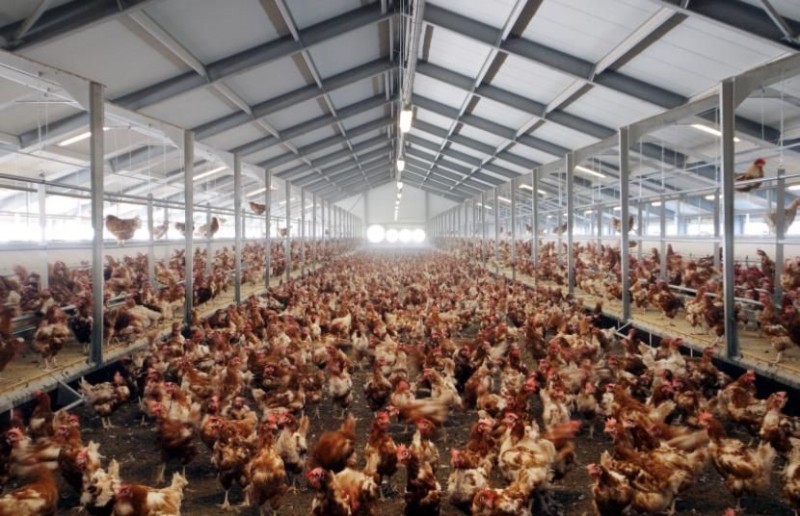
KLANG: Egg-laying hens at most egg production farms in Malaysia spend their entire "working years" confined in narrow wire cages before they are finally slaughtered and sold off as "ayam pencen" (retired fowl).
These hens have barely enough space to even turn around and this smacks of animal cruelty.
According to Humane Society International (HSI) data, battery-cage egg production had been done away with and banned throughout the European Union, Australia, New Zealand, Canada, India and in several parts of the United States.
Currently, HIS has initiated efforts to introduce cage-free egg farms in this region and so far, several Malaysian businesses have committed to support the cageless method of egg farming.
HIS senior advisor for Farm Animal Welfare, Policy & Engagement Dr Saravanakumar S.Pillai said this was a positive turn of events.
"We applaud these forward-thinking businesses for switching to 100% cage-free eggs, and we look forward to continuing working with them on the implementation of this policy.
"Incorporating animal welfare into business decisions is not only the right thing to do, but also makes good business sense," said Dr Saravanakumar.
He added members of the public generally cared about animal welfare and will soon support the cage-free movement which was raging across the globe.
According to Dr Saravanakumar, HIS has been reaching out to cafes, restaurants and mini-marts as well as egg distributors and producers to push forward the cage-free agenda.
This was in tandem with animal welfare which dictates that animals should be free from cage confinement.
Malaysia implemented the Animal Welfare Act 2015 to ensure that animal welfare provisions were strengthened in the country.
Egg producer Permagreen Farm Sdn Bhd director Stefanie Yan said the company had started its cage-free egg farm pilot project in Dengkil on a one-acre plot.
"We have now opened-up an 11-acre farm in Kuala Pilah and are committed to the cage-free method," she said.
Under the cage-free system in her farm, egg laying hens were kept in large coops where they were able to exhibit their natural instincts such as walking around, perching and scratching, added Yan.
When asked if cage-free hens laid better quality than the caged-battery hens, Yan reckoned there wasn’t much of a difference in egg quality.
"Our aim to be cage free is to focus on animal welfare as well as to be cruelty free," she said.
Farm Café proprietor Dr K. Manikam, who is also a veterinarian, said the current practice of confining egg-laying hens in tiny cages went against the Five Freedoms of Animal Welfare.
"The hens must be in a stress-free environment and should be free to roam around," he said.
He said although they were in coops, the hens had the freedom to move around and there was food and water in the coops for them to eat and drink as they wanted to.
Given that hens naturally did not lay eggs at the same spot all the time, the coop also came with dark corners for them (the hens) to choose to lay their eggs, explained Dr Manikam.
"This is a much needed and important move and that is why I only use cage-free eggs in my restaurant," he said.
The Five Freedoms of Animal Welfare dictates that animals must be free from hunger and thirst, free from discomfort, free from pain, injury and disease, free to express normal behaviour and free from fear and distress.
Although there wasn’t concrete quality comparison data between caged and uncaged egg production, research by the European Food Safety Authority apparently found that eggs that were farmed cage-free were about 25 times less likely to be contaminated with salmonella as opposed to battery-caged egg production.
Source: https://www.thestar.com.my/news/nation/2022/07/01/malaysian-businesses-support-cageless-method-of-egg-farming

